September 1916
Romania joins the war – Greece desegregates
September 1
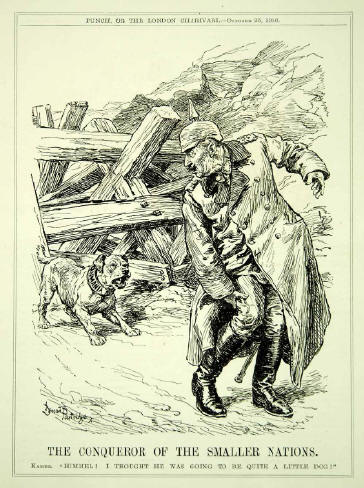 On Sunday, Romania declared war on Austria-Hungary. Germany immediately declared war on Romania and Italy declared war against Germany. No indication has been received thus far of the immediate effects on the military
situation in the Balkans, which now become of predominant importance.
On Sunday, Romania declared war on Austria-Hungary. Germany immediately declared war on Romania and Italy declared war against Germany. No indication has been received thus far of the immediate effects on the military
situation in the Balkans, which now become of predominant importance.
Romania is the 14th nation to join in the war. Her intervention either on the side of the Allies or the Central Powers has been awaited with concern by both since the beginning of the great conflict. This is due not entirely to Romania’s military strength, but also to the
strategic advantages of her geographical position and the fact that her entry into the struggle opens to the Russian army a gateway through Romania to attack the Bulgarians from the north, while the Allied army struck them and their German allies from the south.
Romania’s military strength is by no means inconsiderable. The country has a population of 6.8 million and her army has been estimated at one half million. It is often been described as one of the most thoroughly equipped and disciplined armies. However, Romania has no heavy
artillery and its flying service is inferior.
According to the War Department, Romania has war supplies to last four months. The entire equipment of the Romanian army is of German manufacturer, which makes the problem of supplying the latest addition to the ranks of the Allies a difficult one. The only known route for
furnishing munitions is by way of Russia, which will put a tremendous additional strain on the Russian transportation facilities. Romania herself does not possess large weapon production capabilities or industrial plants suited for that purpose.
The motive which prompted Romania to enter the war is the satisfaction of her national aspirations, which concisely put, means national expansion. In the southern half of Bukowins, the Austrian Crown land, the Romanians are the dominant race. Four million Romanians live in
Eastern Transylvania, a part of Hungary. Romania has been credited with the long cherished ambition to annex these provinces and liberate the Romanians now under Austrian domination. Russia has offered the Russian territory of Czernowitz where two million Romanians live, as a reward if she would join
forces with the allies.
Romania also covets Bessarable, the extreme southwestern province of Russia on the Black Sea, which was taken from her by the Berlin Treaty of 1778. Reports have stated that Russia also has consented to restore Bessarabia as a war prize, with a population of 2 million, mostly
Romanians. This, with Transylvania, would give Romania a total population approaching 13 million and, should all her aspirations be satisfied, a territory as great as that of England, Scotland and Wales.
Military commentators agree Germany must carry the war into Romania by means of swift movements. There is no disposition to underestimate Romanian army, but the belief is expressed that while the Romanian troops are fresh, they lack much of the experience and especially the
fortitude necessary to meet successfully the difficulties of modern warfare. In course of time many experts agree that Romania will quickly meet the same fate as Serbia. The economic advantage to be gained by overrunning Romania rapidly are not to be overlooked. In the event of swift and successful
invasion, Romania’s vast stores of grain and rich oil wells would be accessible to the Central Powers.
Bulgaria announced that it has occupied a 50-mile stretch of Greek territory along the Aegean Sea. The Bulgarians began occupying this region last week, where several Greek forts were occupied. The Bulgarians took the action evidently with the purpose of organizing the defense
of the open country along the Aegean, which affords the best avenue of approach for an Allied invasion of Bulgaria from their bases in Salonika, in Greece.
Although this move is reported to have inflamed the Greek people, the Bulgarians claim it was made with the assent of the Greek government, which has received an understanding with Germany and Bulgaria that any occupied territory will be returned to Greece at the end of the
war, much as the Allies have an understanding with Greece that territory they have occupied will be returned to Greece at the end of the war.
Meanwhile, the beginning of a revolution in Greek Macedonia has been reported. The revolutionist are calling for Greece to join the war on the side of the Allies immediately.
September 8
The battle of the Somme has now reached the high pitch of violence. The French and British are striking blow after blow in what appears to be a supreme effort to force their way through the German line.
The British Army engaged the flower of the German army - the Prussian Guard - on Tuesday. The German Emperor’s favorite troops, where driven back, counterattacked and again had to yield their trenches to stubborn English and Scotch, who fought all the harder because of the
prestige of their foe. It hardly seems possible that more artillery could be concentrated against a given area that had been already, never had so many guns been in action.
The Germans are not yielding their carefully organize positions without desperate resistance, and the fighting among rows of villages and over desolate farmlands is increasingly severe, with heavy losses on both sides. The battle is being carried on under the most unfavorable
weather conditions.
The new Russian offensive in Galicia has resulted in further advances in the direction of Lemberg and further south, near the Hungarian frontier. Violent fighting is underway. The Austrians are resisting desperately, but their counterattacks have been repulsed everywhere.
Austrian troops continue to retire before Romanian troops advancing north into Transylvania. The advance of the Romanian troops in the first five days of the campaign was considerable, and at some points was as much as 48 miles. The forward march, however, now has been somewhat
slacken because of the difficulty of sending resupply convoys.
Romania’s declaration of war was so unexpected by Austria that only a few troops of the Dual Monarchy were on the Romanian frontier, and these were not on guard when hostilities were begun. Half an hour before war was declared Hungarian officers were drinking with Romanians at
a frontier railroad station. Soon afterwards a Romanian contingent entered the station, took the officers as prisoners and capture quantities of materials. The Romanian offensive was so sudden that the Austrians had not time to blowup bridges.
Between the Danube and the Black Sea, in eastern Romania, the Bulgarian-German forces are engaged heavily with the Romanians all along the frontier. Turtukia, a fortified Romanian town on the Danube, about 50 miles southeast of Bucharest, has been evacuated by the Romanians in
the face of enemy attacks. More than 20,000 Romanians were taken prisoner when Bulgarian and German troops captured the remaining fortress of this town.
The revolution in Greece is spreading and martial law has been proclaimed in Athens and several other cities. The uprising is extending into Thessaly and Epirus, which together with Macedonia constitute the northern half of Greece.
It is reported that the Greek government at Athens has accepted the demands of the Allied powers demanding: 1) control of the post, telegraph and wireless systems on the grounds that they were being used by enemies of the allies, 2) that agents of the Central Powers employed in
corruption and espionage must immediately leave Greece, and 3) that measures be taken against Greek subjects guilty of conspiring with Germans.
While the people of Athens were being mildly bemused at the spectacle of Allied sailors and secret police pursuing German agents about the streets, a profound change in the status of affairs was effected quietly.
Greek Prime Minister Zaimus is now in a position to swing the whole country as he will, un-embarrassed by any dissenting popular opinion or hostile parliamentary control. He issued a decree dissolving Parliament and postponing indefinitely the calling of new elections,
disposition effectively of any parliamentary interference with his policies.
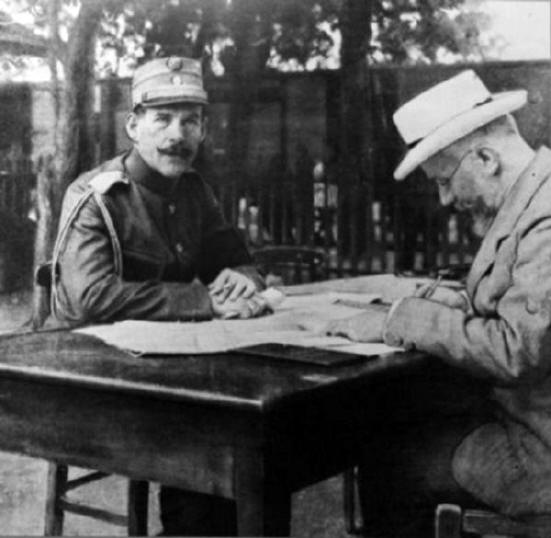
Greece may now find herself at war overnight at the bidding of a single individual. The solution of the political muddle which had Greece in a condition of wavering neutrality for two years was effected quietly, and the public was not aware of the extent to which the
Constitution of Greek was virtually set aside or the manner in which the power was traded to the hands of the premier.
September 15
British troops have been engaged in the heaviest kind of fighting along three and half mile front on the Somme. On the front of more than a quarter-mile wide the British advanced 300 yards and captured 600 yards of German trenches.
The artillery preparation for the great attack Sunday and Monday is described by soldiers and French civilians who heard or saw it from points behind lines as the most stupendous of the campaign. On the hills 4 or 5 miles from the front it was necessary to shout at the top of
the voice in order to conduct a conversation.
It is no longer correct to speak of the lines as trenches; they usually consist only of shell craters, linked by rough and ready communication trenches. Not only the front lines, but the whole terrain in the rear lie under such a vehement and unbroken fire from artillery that
it is unsafe, often impossible, to go forth, even at night, to bring forward food and water. Telephone communications with the front cannot be maintained with dependence so often are the wires cut and so dangerous is it to repair them. This has led to a revival of carrier pigeon communication and the
introduction of birds for carrying messages, not for long distance, but as the only dependable medium of communications from the front to the rear. Pigeons often bring the only assurance to the commanders that the troops are still holding positions.
Meanwhile on the eastern front, German and Turkish troops are engaged in stubborn fighting with Russian forces in Galicia. The fall of Haliez, southeast of Lemberg, appears imminent. The Austrians are reported to be blowing up the forts in Haliez.
The Russians are in possession of the entire left bank of the Dniester River, which cuts through Haliez. Preparations are going on with all swiftness for the transport of Russian forces to the right bank and the subsequent occupation of the whole city. From this point the
Russians advance towards Lemberg should be swift and overwhelming.
In Greece, King Constantine has requested and accepted the resignation of his Prime Minister and his cabinet. The belief is that the retirement of the government is preliminary to the entrance of Greece into the war on the side of the allies. Should Greece decide to join the
Allies, she will do so, it is understood, without any guarantees for the future. There was a time when allies were ready to offer Greece territorial advantages in return for her military assistant. That time has passed.
September 22
Army officers universally are speaking of last Friday as the best day for the British army since the offensive began on the Somme front. The attack begun Friday morning was the most extensive of any in the 10 weeks of the battle.
Evidently the Germans did not expect the attack, considering that the offensive war on that front was over, and that the British would settle down for the winter in their new positions. Never before have more guns opened fire over the same length of front then along the 6-mile
front where heavy fighting is now engaged.
With infantry can new armored motorcars. So ludicrous are they in appearance that the British soldiers laughed at them in the midst of the charge. Those who have seen the new vehicles refer to them as "Tanks," while the soldiers who have been handling them give them the
nickname of "Willies".
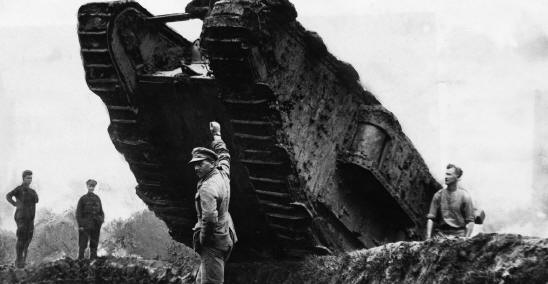
The object that the designers sought to obtain was to render a heavily armored motorcar capable of being operated in the shell torn and roadless wilderness of the front lines where normal wheeled vehicles could not be used.
Evidently the British were able to keep the building of these cars entirely secret, and the first that the Germans knew of their existence was when, in the misty dawn Friday morning, they came thundering across shell craters and over tree stumps, cutting down many small trees
on their way towards the German trenches. The return to Earth of dinosaurs spouting bullets from their nostrils could not have been more amazing.
"Tanks" is a slang word the Army staff has applied to the strange creations of machinery, but they look less like tanks than anything else in the world. It is hard to say what they look like. They have been compared both to armadillos and measuring worms and to many other weird
creeping or crawling objects of natural history
During the days preceding the attack as they were moved up to the front and the soldiers gazed at them, the reasonability of all ranks was tickled. All sorts of questions were propounded. "How does it stand when it was hitched?" and "What was it fed?" "Which was its tail and
which it head?" Spectators laughed at it, but with a true British sporting instinct hoped it would at least have a sporting chance.
Cooperating with the infantry, according to pre-arrangements, the grotesque creatures played the part set for them under the control of their invisible crews. Some soldiers said their battalions had nothing more to do than harvesters who gather sheaves following a reaper
binder.
It is a small wonder that anyone who saw in action one of these armored motorcars - if car can be allowable name - should not hold up his hands. They have brought a new element into the grim, monotonous business of war. It was the "Tanks" day and the "Tank" made good.
The British War Minister, David Lloyd George, gives credit to Winston Spencer Churchill, the former first Lord of the Admiralty, for the new armored cars. "He took up with enthusiasm the idea of making them a long time ago and that with many difficulties. Churchill convinced
me, and the Ministry of Munitions went ahead and made them. The Admiralty experts were invaluable and gave the greatest possible assistance. They, of course, are experts in the matter of armor plating."
Asked for his personal opinion about the cars, the War Minister said: "We must not expect too much from them, but so far they have done very well and reflect credit of those responsible for them. The enemy has by no means a monopoly on inventive ingenuity."
September 29
The unusually early settings in of autumn, in addition to hampering maneuvers on the other fronts, has caused a slowing down in the operations in Transylvania, where the higher points already are covered with 4 feet of snow.
Torrential rains on all fronts where the Austrians are engaged have converted the battlefields into quagmires, and indications are that a lull in offensive movement is coming, although the freezing the ground would improve the condition of the terrain.
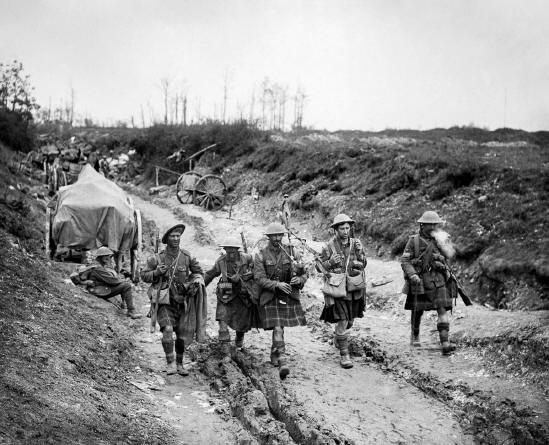
Once more the Russian onslaught in Galicia has stopped. In Transylvania both sides are handicapped by the snow and mud. In Dobrudja everything is knee-deep in mud and mire, while the Italian front is experiencing regular outbursts and snowstorms in the higher altitudes. There
are persistent rains in Macedonia, and reports reaching here from the Western front tells of the same story, so that all of central Europe literally is a swamp from the military viewpoint.
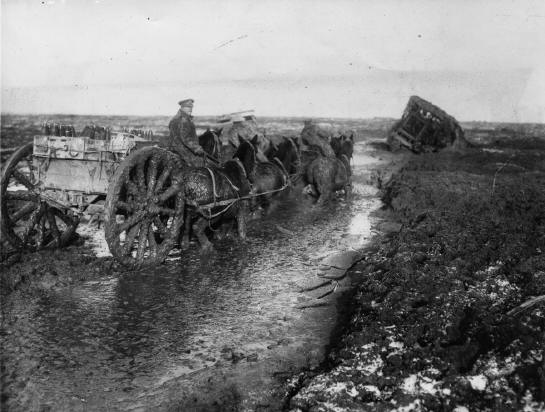
Those who had hoped that a decision would come before the advent of winter now see that newer and greater offenses next spring are inevitable. At all points therefore, operations are being slowed down, especially where the terrain is new, where the roads are few and far between
and uniformly bad. The outlook that the rains will not cease before freezing sets in is not good, so that it is believed the present situation is likely to prevail for about six weeks.
All military critics believe the wet fall offers an opportunity for the concentration of troops of the Central Powers against the newest antagonist, Romania, which has vast stores of food and petroleum.
In the south, the Allied offensive from Salonika will recede as winter approaches, because the Macedonian mountains, which have a bad terrain in summer, even now are considered impassable in many places. Officers and men returning from the various fronts agree that mud is the
worst enemy.
Recent local successes obtained by the British on the Somme are heralded by the British press as great victories, nevertheless, the British have only made this advance after 11 weeks of the most desperate effort. The results of the battle of the Somme should be gauge by
considering the amount of French and Belgian territory occupied by the Germans, which amounts in all to about 50,000 km². The efforts made by the French and British in the battle of the Somme have resulted in the re-conquest of only 1,500 km², or 3%.
The price paid for this territory is appalling. According to a conservative estimate the British have lost 350,000 men up to September 15. This, together with the French losses, brings the total to loses for the Allies to 500,000 men.
The German general staff has moved from the Western to the Eastern front. Since the appointment of Field Marshal von Hindenburg as Chief of Staff, it has been reported that he desired to leave in France and Belgium sufficient men to hold the line and devote his energies to the
east, for he is credited with the belief that it is on this front that the first conclusive victory must be one.
Evidence is accumulating that the central powers are now devoting their main attention to the campaign in the East, concentrating large forces against Romania, and putting all possible available men in the field to stop the Russian march on Lemberg.
The Greek situation continues complex. Former Prime Minister Venizelos is quoted as declaring that if the government controlled by the court party, does not act, the nation itself must defend its own interests. The former Prime Minister left Athens for one of the districts
where the revolution has spread where he will be able to organize the revolutionary movement.
The revolutionary fever is reported spreading with further disorders in Greek Macedonia, where revolutionary movement has been in progress for some time. The town of Koshani, with a population of 10,000, has removed from office the Greek civil authorities. The police chief, the
military governor with the company of soldiers are said to have joined the uprising.
The head of the Greek navy has joined the revolutionary forces, along with several battleships and other warships. The warships left Athens and join the Allied fleet. Meanwhile the loyal officers and soldiers of the garrison in Crete have requested that the Allied navies
provide means for their return to Athens, after Crete joined the revolutionary side. Crete’s civil authorities have placed themselves under the "committee of national defense" established in Salonika.
The Kingdom of Greece is now only a name. Salonika, Thasos, Chios, Samos, Crete, and Mytilene no longer are governed by the King. A proclamation of independence has been issued in Epirus. Only Athens is loyal to the King. Even Athens is place-carded with such appeals as "draw
the sword, King, or abdicate." These and similar appeals appearing on place cards and in the press go unpunished and it is evident that the king's authority is almost gone. Houses in Athens stored with arms for revolutionary purposes are openly guarded and the king does not dare openly to challenge
the least act of violence. If Venizelos chooses to lead a separate government elsewhere, no one will oppose him.
According to the former Prime Minister, "Although Romania entered the struggle, the Greek Court Party which governs us seems to persist in the policy which it calls neutrality. This policy is persisted in even after the shameful Bulgarian invasion. Everyone must realize that if
the government has forgotten its duty towards the nation the nation must itself immediately take in hand the defense of its own inhabitants.
The former Prime Minister issued a proclamation summoning King Constantine to head a movement to put Greece by the side of the Allies. If he should not do so it is expected that he will form a separatist government for that end. The Athens Dispatch says that the Venizelos
proclamation will be the last opportunity for King Constantine to place himself and his government at the head of the wishes of the majority of the Greek people.
Read past editions of News Reports From the Front